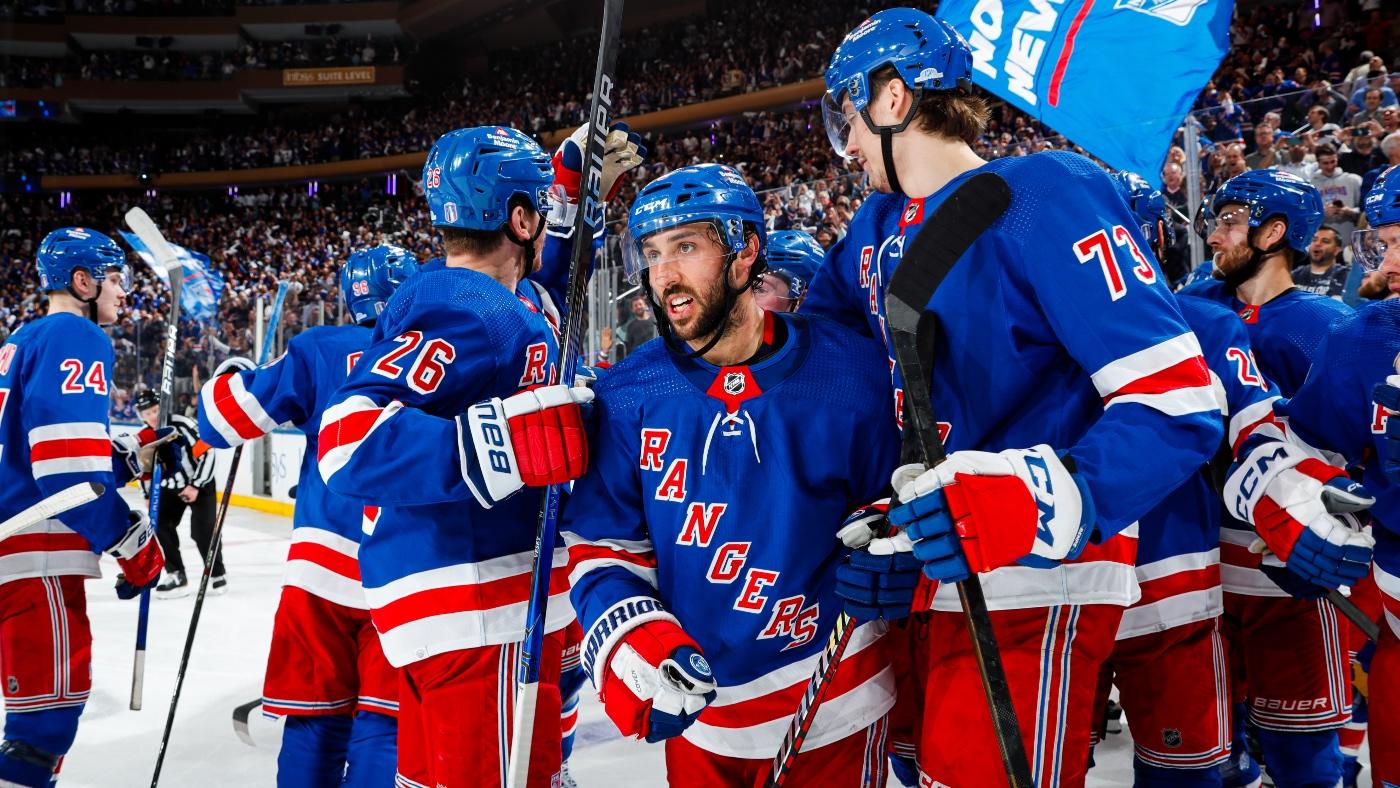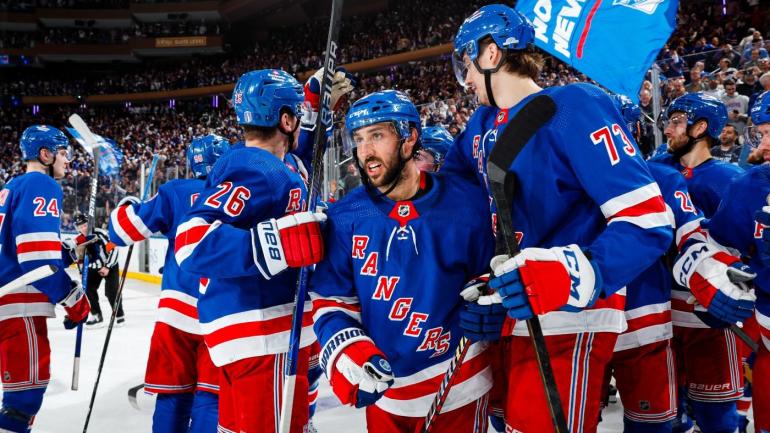

With the 2024 Stanley Cup Playoffs in full swing, some thrilling overtime action is in store — though it looks a little different than it does in the regular season. Much like the Energizer Bunny, NHL playoff overtime just keeps going and going, at least until someone scores.
Some fans might be tuning in for their first real taste of playoff hockey and wondering exactly where the three-on-three overtime and shootouts went. To be fair, those were in place throughout the 82-game regular season, and they do provide a good bit of drama when the game goes beyond regulation.
However, as fun as a one-on-one showdown between shooter and goalie is, it’s not necessarily the best way to decide a Stanley Cup champion. No one wants to pour out blood, sweat and maybe a few tears only for a glorified skills competition to determine their fate.
The same can be said for the five minutes of three-on-three overtime. That has been wildly popular since it was first implemented the 2015-16 season, but it is a little too gimmicky for postseason play.
Because of the mini-game nature of the regular-season overtimes, the NHL continues to stick with a tried and true method of determining winners when playoff games go beyond their regularly allotted 60 minutes.
NHL playoff overtime explained
The good news here is that there isn’t much to be explained. Teams just keep playing the game as usual – five skaters and a goalie per side – while stacking one 20-minute period on top of another. The only difference from regulation is that it’s sudden death. The next goal ends the game.
This particular overtime format does mean that some games can turn into marathons. It’s not uncommon for playoff games to reach two or three overtime periods before ending. During overtime intermissions, players consume enough orange slices and Gatorade to rival a youth soccer team on a Saturday morning.
On a handful of occasions throughout NHL history, games have extended to four, five, or six overtime periods.
Longest playoff games in NHL history
Has the Stanley Cup ever been won on an OT goal?
Yes, the greatest trophy in sports has been handed out following an overtime goal on 17 different occasions throughout NHL history. The first time that happened was in 1933, when Bill Cook of the New York Rangers scored on the Toronto Maple Leafs to win the Stanley Cup for his team.
The most recent example came a decade ago when Los Angeles Kings defenseman Alec Martinez beat Rangers goaltender Henrik Lundqvist to win the 2014 Stanley Cup Final in five games.
Hopefully, the 2024 Stanley Cup Final can provide that same level of drama on the 10-year anniversary of Martinez’ fateful shot.
As the 2024 NHL season approaches, fans are gearing up for another exciting Stanley Cup Playoffs. One question that often arises during playoff overtime is whether shootouts are used to determine a winner. In the NHL, playoff overtime rules do not include shootouts in the Stanley Cup Playoffs.
Instead, playoff overtime in the NHL follows a sudden death format, where the first team to score a goal wins the game. This means that overtime periods can potentially last indefinitely until a goal is scored. This format adds an extra level of excitement and tension to playoff games, as teams battle it out in high-pressure situations.
In recent years, there have been some changes to the NHL playoff overtime rules to help speed up the game and reduce the number of marathon overtime periods. In 2019, the league introduced a rule that requires teams to switch ends of the ice after the first period of overtime. This change was made to ensure that both teams have an equal opportunity to score in overtime.
Another rule change that was implemented in 2020 was the introduction of 3-on-3 overtime in the playoffs. This format, which is used in the regular season, sees teams play with fewer players on the ice in an attempt to increase scoring chances and shorten overtime periods.
Overall, NHL playoff overtime rules do not include shootouts in the Stanley Cup Playoffs. Instead, fans can expect to see intense sudden death overtime periods where anything can happen. So as we gear up for the 2024 NHL season, get ready for some thrilling playoff action and be prepared for the possibility of some nail-biting overtime moments.


